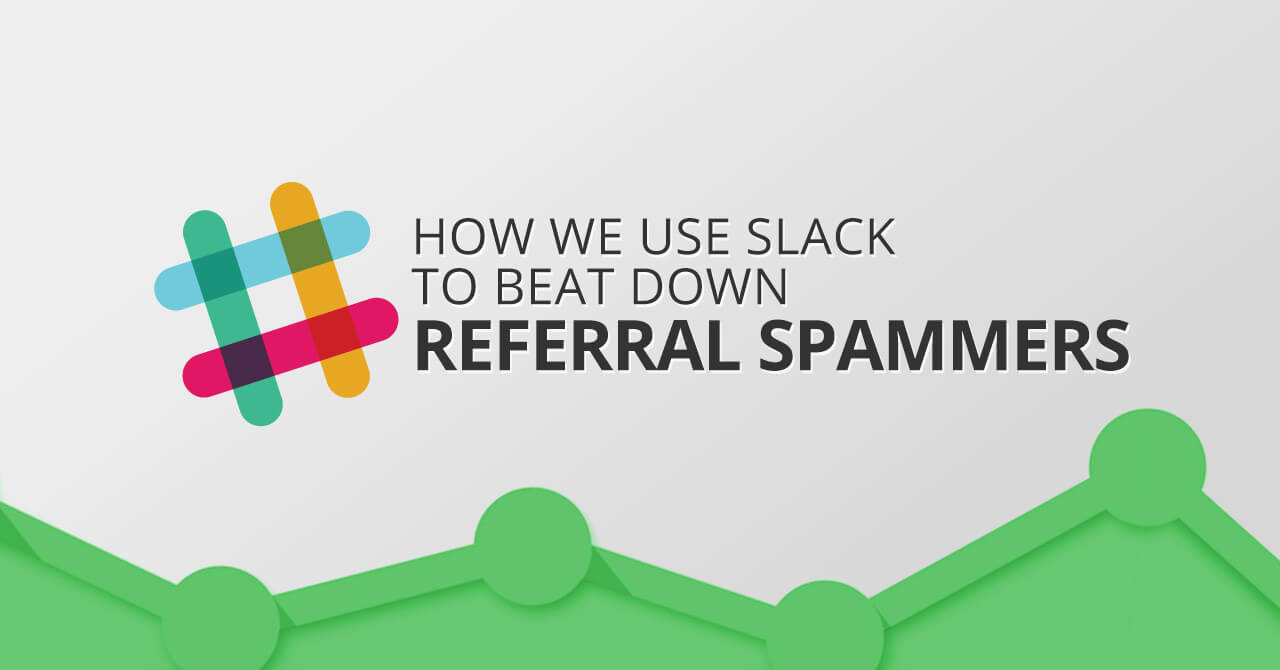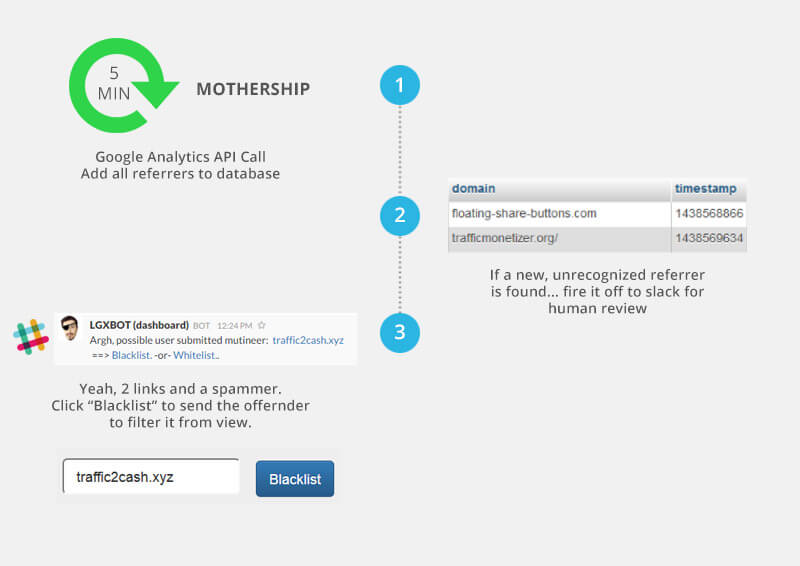How We Use Slack to Beat Down Referral Spammers

Hand off the toughest tasks in SEO, PPC, and content without compromising quality
Explore ServicesFlashback to 2014. My work communication revolved around Skype. Aside from all the normal contacts & conversations, I had a bunch of external scripts running that collected “stuff” (expiration messages, downtime notifications, online conversions, etc) and sent them through a VPS I had running so I could get it posted to my skype. It was a fantastic (albeit ugly) hack. All the little details of my online life were sent as updates to the software I had running 24/7.
Having access to everything in one place is important. It’s time efficient, chaos-cutting & in many cases, what separates the winners from the losers in business transaction that happens at the speed of now..
Slack separates itself from the competition with it’s plug-in-ability with the rest of the net. Having my old skype setup in mind, I set off to start to incorporate the rest of “life” into slack.
We started off with simple reminders, some goals hit, orders placed, meeting reminders, etc. In a matter of just a few months, it has become the filter for almost every facet of our operations. One operation in particular I’d like to expand on is how we use slack to stay ahead of the curve while fighting spam in google analytics.
As a company, we’re heavily involved with reporting. A lot of that relies on traffic analytics to determine effectiveness. 2015 was the year of ghost spam, this is spam that forges its way into your analytics dashboard as a method of advertising. As you can imagine, this was a major pain in our ass that we knew we needed a solution. Since we’re into messaging details of our business into slack channels, this was the perfect opportunity to find out how far we could push it.
Organizing the Chaos
As a programmer, both Slack & Google Analytics have pretty advanced APIs that allow us to access the backend data they collect. For slack, it’s messages .. for analytics, it’s visitors. Since we’ve got backend access, all we have to do is collect all visitors and see what’s new.
The system started with a php script and backend database that collected all referrers that we found in analytics. This isn’t just a single account, we gave access to every account that we had access too. That includes our corporate site(s), personal sites, clients sites, etc. While not even a tiny fraction of the entire internet, it was a big enough that we had a decent collection of data to use. Now that we had referrers, it was just a matter of figuring out which was legit, and which ones were fraudulent.
#Slack – Our Silver Bullet
There are others trying to solve the “Referrer Spam” problem. Every one of them have decided that manually reviewing all inbound referrers is too much, or just simply hasn’t done enough to keep up. How do we know? Most of their solutions are inclusion and exclusion filters to try to get rid of spam matching patterns. If this were surgery, it would be like using a machete instead of a scalpel. Details, precision and the human touch matter.
Since we’re doing this old school, we rely on labor to segregate a link from a spammer. By sending each referrer we receive to slack, we’ve got our entire team looking at incoming messages and recognizing the work done. This has been great for morale since SEOs have to wait long periods to see the fruit of the rewards. By checking the channel, we find out pretty quickly which link opportunities worked out.
The process works like this:

As you can see, we’re checking frequently enough to catch everything that hits our account, but not enough to be a resource drain. We’ve got employees all over the globe, so the time between when a link (or spammer) is found and when we know about it is very small.
So yeah, thanks Slack for rescuing me from the dark ages of 2014 and providing me with a simple, useful & efficient chat program that lets me hack #myslack out as I see fit. Remember 2002 when google revolutionized search by simply doing it better? Yeah, slack is on pace to do exactly that with messaging software. Now if we can only convince them to make it easy for non-programmers using some kind of IFTTT way of hooking into 3rd party websites, it’ll be that much more useful to the average Joe.
Hand off the toughest tasks in SEO, PPC, and content without compromising quality
Explore Services




